Related Research Articles

Friedrich Christoph Oetinger was a German Lutheran theologian and theosopher.

Johann Adam Hiller was a German composer, conductor and writer on music, regarded as the creator of the Singspiel, an early form of German opera. In many of these operas he collaborated with the poet Christian Felix Weiße.

Alfred Kerr was an influential German theatre critic and essayist of Jewish descent, nicknamed the Kulturpapst.

Johann Friedrich, Freiherr Cotta von Cottendorf was a German publisher, industrial pioneer and politician.

Walter Ritter/Reichsritter von Molo was an Austrian writer in the German language.

Max Herbert Eulenberg (1876–1949), was a German poet and author born in Cologne-Mülheim, Germany. He was married from 1904 to Hedda Eulenberg.
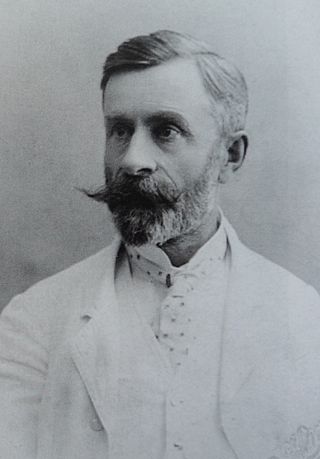
Arthur Leist was a German writer, journalist and translator of Georgian and Armenian literature.

Günter de Bruyn was a German author.
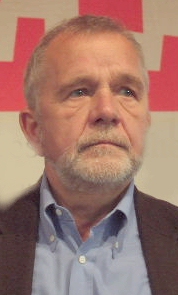
Rüdiger Safranski is a German philosopher and author.
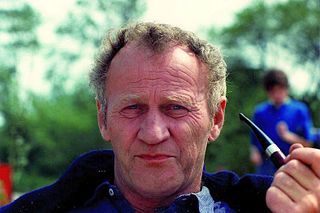
Max von der Grün was a German novelist.
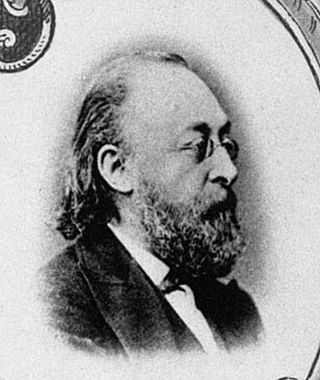
Karl Theodor Ferdinand Grün, also known by his alias Ernst von der Haide, was a German journalist, philosopher, political theorist and socialist politician. He played a prominent role in radical political movements leading up to the Revolution of 1848 and participated in the revolution. He was an associate of Heinrich Heine, Ludwig Feuerbach, Pierre-Joseph Proudhon, Karl Marx, Mikhail Bakunin and other radical political figures of the era.
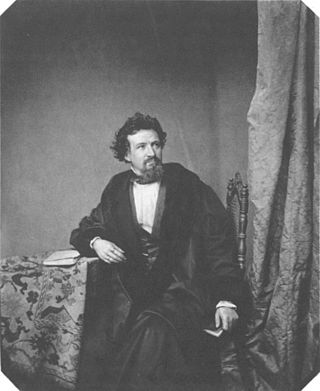
Hermann Lingg was a German poet who also wrote plays and short stories. His cousin, Maximilian von Lingg, was Bishop of Augsburg.

Jakob Stutz (1801–1877) was a Swiss writer.

Peter-André Alt is a German literary scholar, former president of the Freie Universitaet of Berlin and, since August 2018, president of the German Rectors' Conference (HRK). Alt is married to the writer Sabine Alt and has two adult sons.

The following is a list of the works by Alfred Schmidt, a 20th-century German philosopher, sociologist and critical theorist associated closely with the Frankfurt School. This list also includes information regarding his work as translator and editor.
Heinz Ludwig Arnold was a German literary journalist and publisher. He was also a leading advocate for contemporary literature.

Franz Manfred Wuketits was an Austrian biologist, university teacher and epistemologist. He wrote extensively on epistemology, the history and theory of biology, evolution theory, evolutionary ethics, evolutionary epistemology and sociobiology.
Heinrich Rombach was a German philosopher and professor of philosophy at the University of Würzburg. He is known for developing structural ontology.
Gerhard Storz was the son of a Lutheran pastor from Württemberg who at various stages distinguished himself in theatre productions, as a scholar, an educationalist, a politician and an author-journalist, sometimes pursuing one career at a time and sometimes several in combination. Throughout his adult life he liked to see himself as a "language therapist". "Human speech seems to have been encoded, sealed into formulaic structures, and pressed into service for mechanistic operations", he once wrote.

The Temple of Juno in Agrigento is an 1828-1830 oil on canvas painting of by Caspar David Friedrich. It is now in the Museum für Kunst und Kulturgeschichte in Dortmund, which bought it from a Cologne art dealer in 1951. It is said to have been previously owned by the F. A. Brockhaus publishers in Leipzig.
References
- ↑ (in German) Peter-André Alt: Schiller. Eine Biographie. In: C.H.Beck, München 2009, ISBN 978-3-406-58681-1, S. 236.
- ↑ (in German) Schiller: Briefe An Charlotte von Lengfeld, Weimar den 50. April 1789 In: Heinrich Doering (ed.) Friedrich von Schiller`s auserlesene Briefe in den Jahren 1781-1805. Jena 1834, S. 117.
- ↑ (in German) Gustav Schwab: Schillers Leben in drei Büchern. S. G. Liesching, Stuttgart 1840. S. 91.
- ↑ (in German) Karl Grün: Friedrich Schiller als Mensch, Geschichtschreiber, Denker und Dichter. In: Brockhaus, Leipzig 1844, S. 497.
- ↑ (in German) Peter-André Alt: Schiller. Eine Biographie. In: C.H.Beck, München 2009, ISBN 978-3-406-58681-1, S. 237.